Most small businesses start out as sole proprietors. When sole proprietors net income begins to near the $80K mark, I highly recommend businesses look at adjusting their current business structure and incorporating. It is important to understand the difference between these two business structures as the Canada Revenue Agency treats these entities differently which can greatly affect your business's tax planning.
Sole Proprietorship and Corporation are legal terms that should be looked at in depth to determine which route a small business would benefit from more, when exploring small business tax planning.
As a business owner and an accountant that specializes in accounting for small businesses, small business tax planning is essential when determining if a business should stay a sole proprietor or make the move and incorporate.
First and foremost, the differences between the two:
A sole proprietorship is a business that is owned by one individual with the simplest form of business structure.
Some advantages of sole proprietorships are:
- Set-up is relatively easy with a low start-up cost;
- If the business loses money, the losses can be written off against other income of the proprietorship;
- Are less regulated than corporations;
- Administration of a sole proprietorship is a low-cost option;
- Regulated by provincial governments and need to be registered; and
- The sole proprietor is in control of the decision making and receives all the profits of the business.
Some disadvantages of a sole proprietorship are:
- The proprietor is liable for all debts and other liabilities of the business (unlimited liability);
- If the business is profitable, it will likely be paying higher taxes than if it was incorporated; and
- Lack of permeance if the owner dies.
On the other hand, a corporation is a separate legal entity which is formed by an application to either the federal government or one of the provincial governments. The corporation can issue shares to the owners or shareholders and the funding of the corporation can be done through the issue of shares or by borrowing.
Some advantages of incorporating are:
- Limited liability, meaning that shareholders are usually limited to the amount that they have invested in shares in the corporation;
- The income tax advantage;
- Private Health Service Plans can be used to provide tax-free benefits to employees; and
- Permeance if the owner dies.
Some disadvantages of incorporating are:
- Complex and high set-up cost;
- Businesses losses cannot be written-off against the other income of the owners (shareholders); and
- Administration of a corporation requires more work than a sole proprietorship (annual reports filed with the corporate registry, corporate tax returns which are filed separately from the owners’ personal tax returns.
Ultimately, the deciding factors for small businesses when deciding to stay a proprietorship or incorporate differ depending on the situation. That being said, I would say that the higher the net income of a small business ($80K and more), the more advantageous it is to incorporate instead of remaining as a sole proprietorship.
Contact Me
For any questions you may have, please feel free to contact me by phone at (306) 530-9548 or by using my online contact form below.






